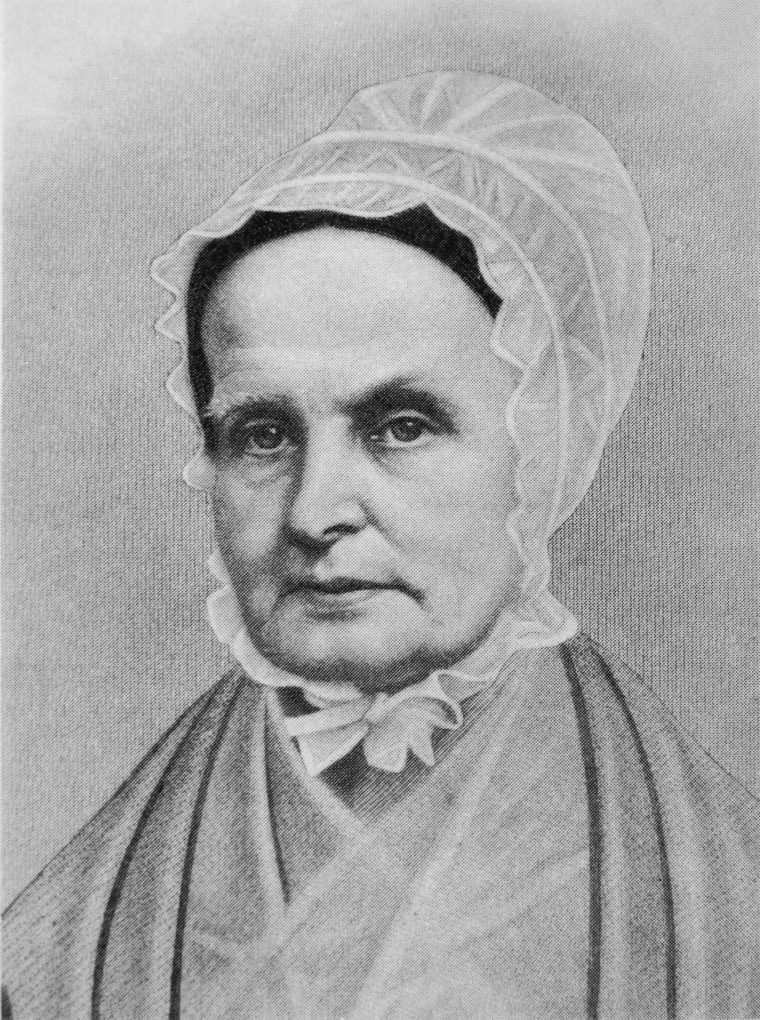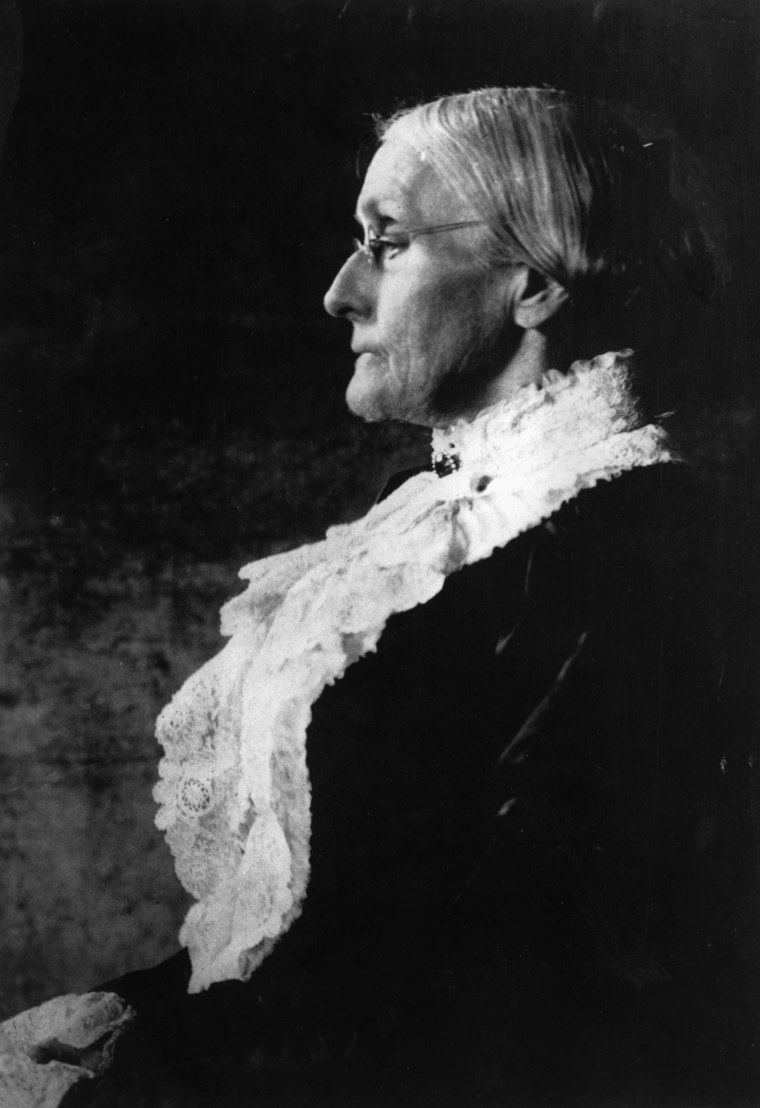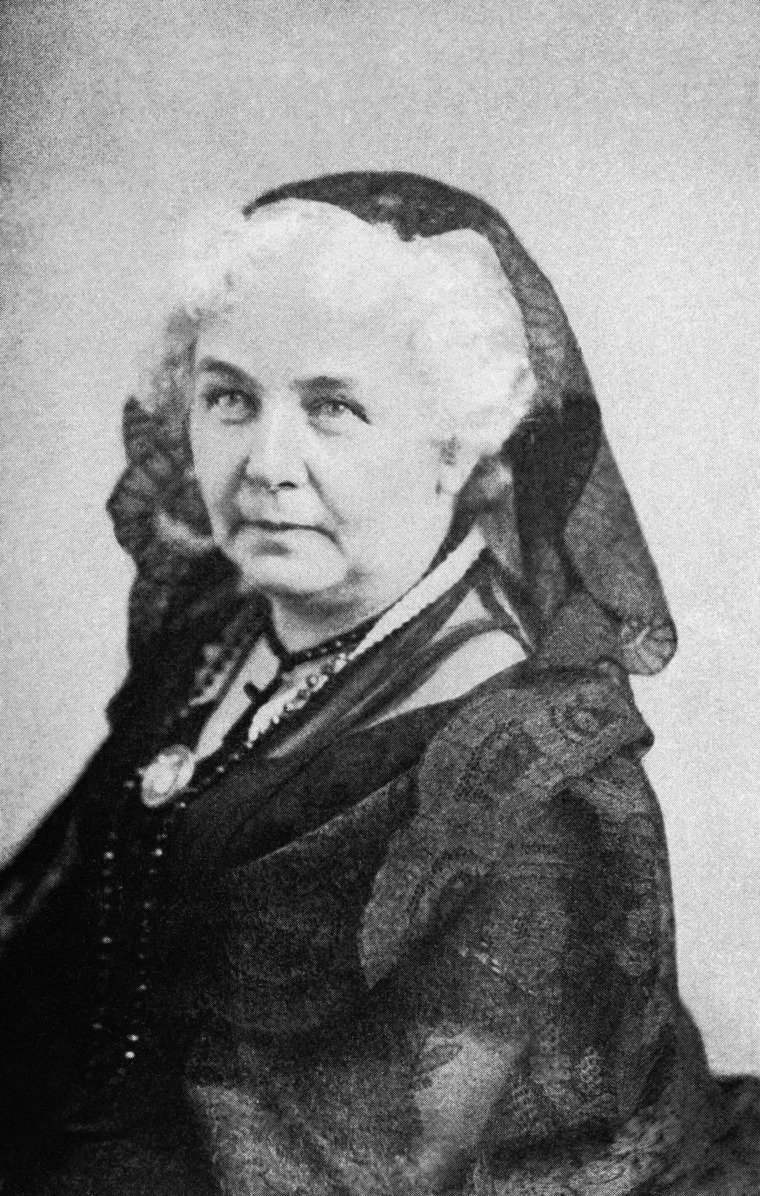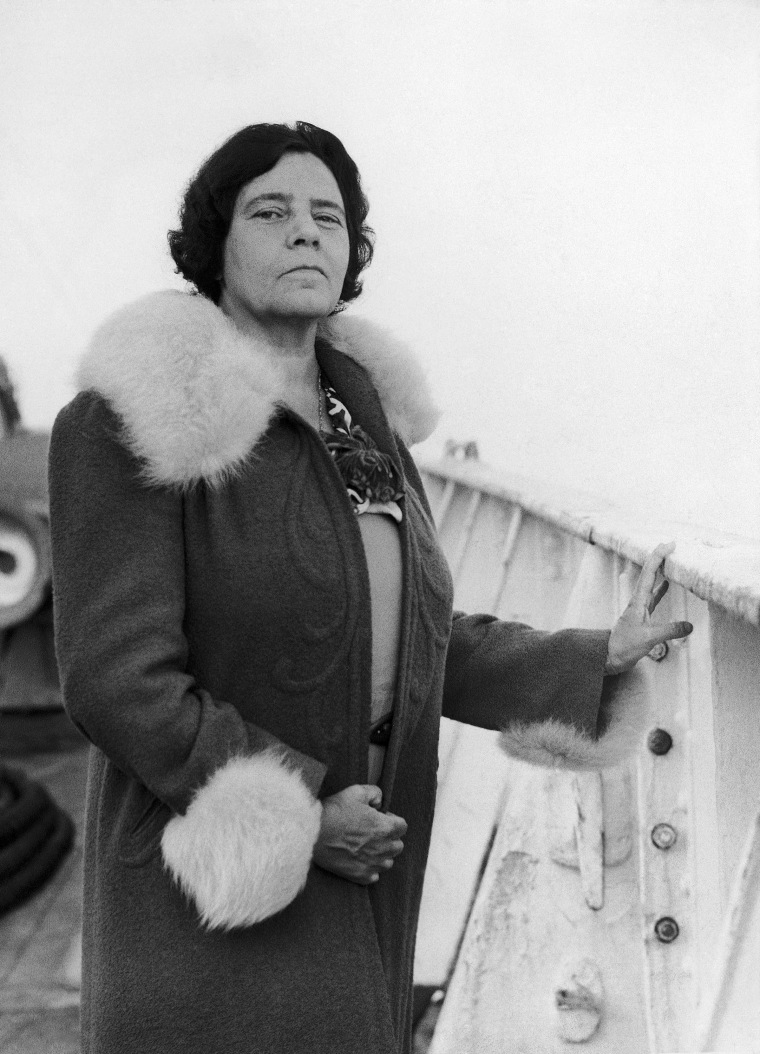

One of the most recognized figures of the women's suffrage movement, Congress in 1978 passed a bill naming a dollar coin after the social reformer.
Anthony was a founder of the National Woman Suffrage Association, and was arrested in 1872 for voting in the presidential election. She was found guilty and fined $100, which she refused to pay.
Anthony said she was convicted by "laws made by men, under a government of men, interpreted by men and for the benefit of men," according to an account in the Kansas Leavenworth Times from 1873, which is online at Rutgers University.
"The only chance women have for justice in this country is to violate the law, as I have done, and as I shall continue to do," Anthony said, according to the account.
Elizabeth Cady Stanton (1815-1902)

Another leading figure in the women's suffrage movement, Elizabeth Cady Stanton organized the women's rights convention in 1848 and was a longtime collaborator with Anthony for women's suffrage.
Called an outstanding orator and chief philosopher of the women's rights movement, Stanton coauthored "History of Woman Suffrage" and was first president of the National Women's Suffrage Association. Stanton is credited with popularizing women's suffrage movement with the public.
"We are persons; native, free-born citizens; property-holders, tax-payers; yet are we denied the exercise of our right to the elective franchise. We support ourselves, and, in part, your schools, colleges, churches, your poor-houses, jails, prisons, the army, the navy, the whole machinery of government, and yet we have no voice in your councils," Stanton said in an address to New York Legislature in 1854.
"We have every qualification required by the constitution, necessary to the legal voter, but the one of sex," she said.
Alice Paul (1885-1977)

Paul has been called chief strategist for a vocal and confrontational wing of the women's suffrage movement that led to the passage and ratification of the 19th Amendment of the U.S. Constitution which gave women the right to vote.
She founded the Congressional Union, later known as the National Woman's Party, and took a more aggressive stance than the National American Woman Association, and one that was focused on a national amendment.
Members of the group picketed the White House and, after the U.S. entered World War I, referred to President Woodrow Wilson as "Kaiser Wilson."
Protesters were arrested and jailed after refusing to pay fines, and Paul and others staged hunger strikes that led to force feeding by authorities. Outrage over that treatment led Wilson to change course and support a national amendment, according to the Alice Paul Institute.
Paul continued to fight for equality even after the 19th Amendment was ratified in 1920.
"It is incredible to me that any woman should consider the fight for full equality won. It has just begun," Paul said. "There is hardly a field, economic or political, in which the natural and unaccustomed policy is not to ignore women ... Unless women are prepared to fight politically they must be content to be ignored politically."
This story originally appeared on NBCNews.com.
